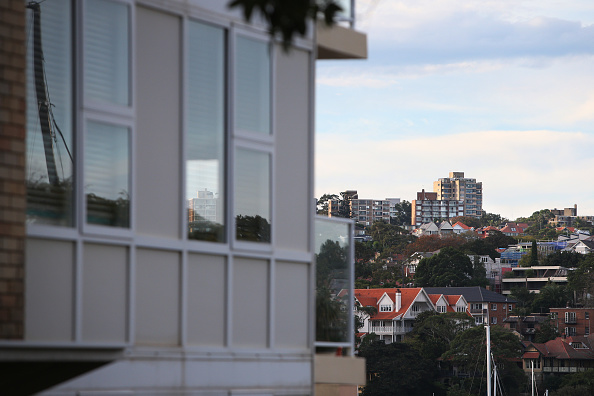Why More Female Executives Don’t Play Golf—and Why That’s a Problem
According to a new study, women miss out on a lot of networking opportunities by not playing the game
Female executives face all sorts of barriers when it comes to using one of the great networking tools for business: golf.
That’s according to a new study, identifying some of the benefits female executives derive from playing golf, as well as the reasons more female executives don’t golf. The study’s authors conducted a content analysis, reviewing almost 100 articles from academic journals, trade publications, general-interest publications and golf associations.
The Wall Street Journal spoke with Deborah Gray, a professor of marketing at Central Michigan University and one of the study’s co-authors, about the research. Here are edited excerpts of the conversation.
WSJ: What were your overall conclusions?
DR. GRAY: Golf is so much different than other networking activities. The game takes hours, and gives you a chance to learn about someone’s life and personality. You learn how they react when things are not going well. You also get a sense of their integrity by seeing if they are honest on the course. Not surprisingly, many executives say their careers benefit from playing golf. We found one article stating that 71% of Fortune 1000 CEOs reported doing business with someone they met on the golf course, and another article that said 80% of Fortune 500 executives say golf has helped their career.
But only about a quarter of all golfers are women. That’s a problem because women’s careers may benefit just as much as their male counterparts. By not golfing, women not only miss out on the experience but also conversations about the experience. They also miss out on the chance to be more visible within their organisation, converse with decision makers and put themselves in a better position for promotions.
WSJ: Your literature review also found that men and women often network differently.
DR. GRAY: Academic researchers have found women’s networks tend to include people who are more like themselves, whereas men’s networks tend to be less homogeneous and more strategic and include more powerful people. One way men create more diverse networks is through golf. They connect with business associates over shared interest rather than a common background. Women should do that, too.
WSJ: What are some of the barriers female executives may face when it comes to using golf as a networking tool?
DR. GRAY: Women often have unequal access to leisure time. Female executives may be caring for children and ageing parents in addition to their professional responsibilities. Consequently, they may prioritize paid work during business hours and skip networking opportunities. That’s especially true for golf because it is very time consuming. Playing 18 holes of golf can take four to five hours.
WSJ: Are there any barriers specific to the game of golf?
DR. GRAY: Female executives may also spend more time worrying that they are not strong enough or good enough to play with male colleagues. But most people are just average golfers. According to the USGA, the average man’s handicap is 14.1 and the average women’s handicap is 28, which is a long way from being a scratch golfer.
Those numbers from the USGA also suggest that the average woman swings her club 12 more times over a round of golf, which isn’t a lot of waiting time over 18 holes, especially if the ball is hit right down the fairway. A common misconception is that higher-handicap golfers, often assumed to be women, are slower golfers. But golfers with low handicaps can be slow, too. The key for any golfer is knowing when to pick up the ball.
But the idea that women play slower has been used by private golf clubs to exclude women from playing during popular times on the golf course, like Saturday morning, though the practice is now changing. Other parts of the game can be updated to be more inclusive. For instance, the forward-most tee is still frequently called the woman’s tee, though some courses now suggest that someone’s handicap dictates where they tee off. Male executives shouldn’t just assume their female colleagues will tee off at a different spot.
WSJ: Aren’t more women starting to play golf?
DR. GRAY: Major golf associations, including the LPGA, are running marketing campaigns to increase the number of women playing golf. These associations are also trying to get more girls to start playing the game. Girls now make up about 36% of all golfers ages 6 to 17 years old. But corporate America could definitely do more to get women into the game.
WSJ: What can companies do to encourage more female golfers?
DR. GRAY: Companies could teach employees more about networking and include golf as part of their training. They could even help employees evaluate gaps in their network and identify key people who can help them accomplish their career goals. I tell my business students to think about a round of golf like any other business meeting, and consider their objectives beforehand. After all, few people would go into a meeting without an agenda. Companies could also sponsor golf lessons at local courses. The key is that it happens during the workday, just like other professional development activities, encouraging people who tend to skip after-hour events to participate. Lessons and clinics also provide opportunities for employee team building, so there are many reasons for employers to think about sponsoring golf lessons.
 Copyright 2020, Dow Jones & Company, Inc. All Rights Reserved Worldwide. LEARN MORE
Copyright 2020, Dow Jones & Company, Inc. All Rights Reserved Worldwide. LEARN MORE
This stylish family home combines a classic palette and finishes with a flexible floorplan
Just 55 minutes from Sydney, make this your creative getaway located in the majestic Hawkesbury region.
As Paris makes its final preparations for the Olympic games, its residents are busy with their own—packing their suitcases, confirming their reservations, and getting out of town.
Worried about the hordes of crowds and overall chaos the Olympics could bring, Parisians are fleeing the city in droves and inundating resort cities around the country. Hotels and holiday rentals in some of France’s most popular vacation destinations—from the French Riviera in the south to the beaches of Normandy in the north—say they are expecting massive crowds this year in advance of the Olympics. The games will run from July 26-Aug. 1.
“It’s already a major holiday season for us, and beyond that, we have the Olympics,” says Stéphane Personeni, general manager of the Lily of the Valley hotel in Saint Tropez. “People began booking early this year.”
Personeni’s hotel typically has no issues filling its rooms each summer—by May of each year, the luxury hotel typically finds itself completely booked out for the months of July and August. But this year, the 53-room hotel began filling up for summer reservations in February.
“We told our regular guests that everything—hotels, apartments, villas—are going to be hard to find this summer,” Personeni says. His neighbours around Saint Tropez say they’re similarly booked up.
As of March, the online marketplace Gens de Confiance (“Trusted People”), saw a 50% increase in reservations from Parisians seeking vacation rentals outside the capital during the Olympics.
Already, August is a popular vacation time for the French. With a minimum of five weeks of vacation mandated by law, many decide to take the entire month off, renting out villas in beachside destinations for longer periods.
But beyond the typical August travel, the Olympics are having a real impact, says Bertille Marchal, a spokesperson for Gens de Confiance.
“We’ve seen nearly three times more reservations for the dates of the Olympics than the following two weeks,” Marchal says. “The increase is definitely linked to the Olympic Games.”

Getty Images
According to the site, the most sought-out vacation destinations are Morbihan and Loire-Atlantique, a seaside region in the northwest; le Var, a coastal area within the southeast of France along the Côte d’Azur; and the island of Corsica in the Mediterranean.
Meanwhile, the Olympics haven’t necessarily been a boon to foreign tourism in the country. Many tourists who might have otherwise come to France are avoiding it this year in favour of other European capitals. In Paris, demand for stays at high-end hotels has collapsed, with bookings down 50% in July compared to last year, according to UMIH Prestige, which represents hotels charging at least €800 ($865) a night for rooms.
Earlier this year, high-end restaurants and concierges said the Olympics might even be an opportunity to score a hard-get-seat at the city’s fine dining.
In the Occitanie region in southwest France, the overall number of reservations this summer hasn’t changed much from last year, says Vincent Gare, president of the regional tourism committee there.
“But looking further at the numbers, we do see an increase in the clientele coming from the Paris region,” Gare told Le Figaro, noting that the increase in reservations has fallen directly on the dates of the Olympic games.
Michel Barré, a retiree living in Paris’s Le Marais neighbourhood, is one of those opting for the beach rather than the opening ceremony. In January, he booked a stay in Normandy for two weeks.
“Even though it’s a major European capital, Paris is still a small city—it’s a massive effort to host all of these events,” Barré says. “The Olympics are going to be a mess.”
More than anything, he just wants some calm after an event-filled summer in Paris, which just before the Olympics experienced the drama of a snap election called by Macron.
“It’s been a hectic summer here,” he says.

AFP via Getty Images
Parisians—Barré included—feel that the city, by over-catering to its tourists, is driving out many residents.
Parts of the Seine—usually one of the most popular summertime hangout spots —have been closed off for weeks as the city installs bleachers and Olympics signage. In certain neighbourhoods, residents will need to scan a QR code with police to access their own apartments. And from the Olympics to Sept. 8, Paris is nearly doubling the price of transit tickets from €2.15 to €4 per ride.
The city’s clear willingness to capitalise on its tourists has motivated some residents to do the same. In March, the number of active Airbnb listings in Paris reached an all-time high as hosts rushed to list their apartments. Listings grew 40% from the same time last year, according to the company.
With their regular clients taking off, Parisian restaurants and merchants are complaining that business is down.
“Are there any Parisians left in Paris?” Alaine Fontaine, president of the restaurant industry association, told the radio station Franceinfo on Sunday. “For the last three weeks, there haven’t been any here.”
Still, for all the talk of those leaving, there are plenty who have decided to stick around.
Jay Swanson, an American expat and YouTuber, can’t imagine leaving during the Olympics—he secured his tickets to see ping pong and volleyball last year. He’s also less concerned about the crowds and road closures than others, having just put together a series of videos explaining how to navigate Paris during the games.
“It’s been 100 years since the Games came to Paris; when else will we get a chance to host the world like this?” Swanson says. “So many Parisians are leaving and tourism is down, so not only will it be quiet but the only people left will be here for a party.”
This stylish family home combines a classic palette and finishes with a flexible floorplan
Just 55 minutes from Sydney, make this your creative getaway located in the majestic Hawkesbury region.





















